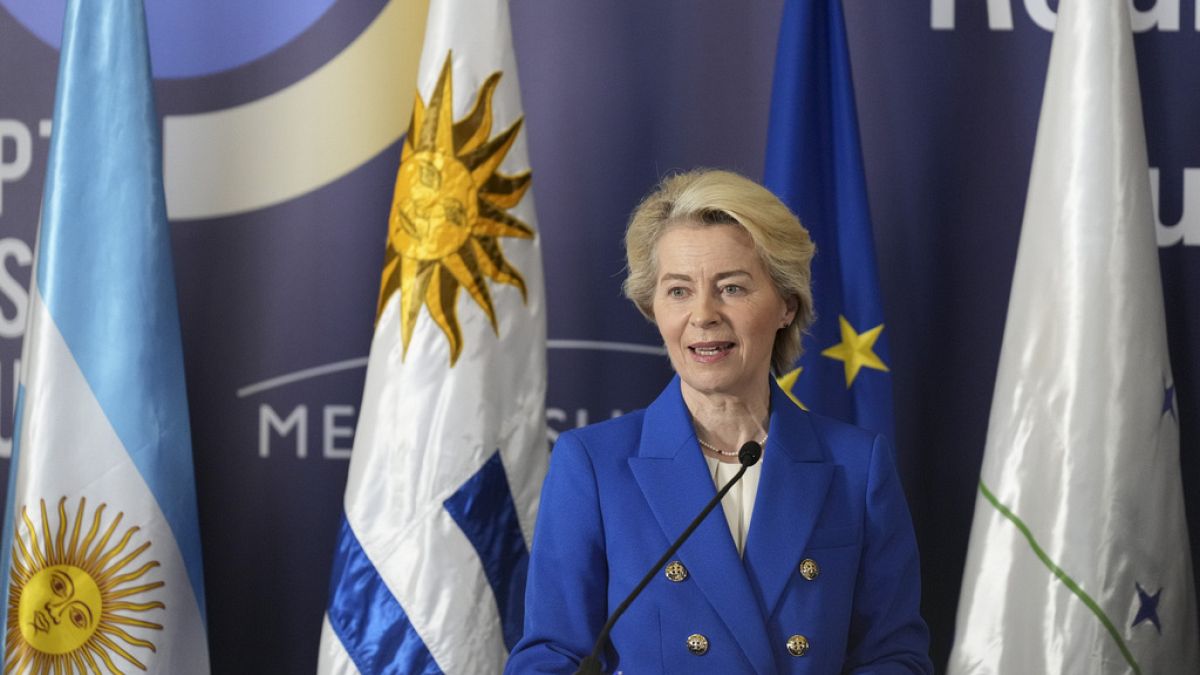

In the ever-evolving landscape of international trade, the European Commission’s handling of key agreements and negotiations has recently drawn attention. A significant point of focus is the Mercosur trade deal, a development that holds potential implications for both the EU and several South American countries.
The Mercosur deal, which involves a trade agreement between the European Union and the Southern Common Market countries—Argentina, Brazil, Paraguay, and Uruguay—has encountered a pause in its progression. Sources indicate that although the deal has been meticulously reviewed by the European Commission’s legal team and prepared for various linguistic translations, its next step towards ratification by EU member states has been put on hold. While the precise reasons for this delay have not been detailed publicly, such pauses often allow for further internal deliberations and strategic adjustments.
This development occurs amidst other dynamic trade discussions involving the European Union. Recently, the EU has been examining a proposal from the United States concerning a 10% baseline tariff. Initial negotiations appear to be geared towards securing exemptions in critical sectors, which underscores the intricate balancing act that these economic discussions entail. The timeline for a preliminary agreement points to a possible consensus by mid-July, with the potential implementation set for August 1st. These negotiations highlight the ongoing efforts to align international trade policies with domestic economic interests across the Atlantic, reinforcing the complex and interconnected nature of global trade relations.
Notably, while the EU navigates these broad international agreements, it also continues to engage with member countries to ensure regional economic stability and growth. A recent example includes Brussels’ support for Romania as it embarks on a comprehensive fiscal recovery plan. This initiative is a testament to the EU’s commitment to supporting member states in navigating financial challenges while maintaining union-wide fiscal health. By aligning national policies with broader EU goals, such measures aim to safeguard against potential economic setbacks and ensure a sustainable recovery trajectory across the region.
Romania’s ambitious fiscal strategy serves as a proactive step towards addressing internal economic pressures while securing ongoing EU financial assistance. The European Union’s backing of this plan underscores its role in fostering economic resilience among member states, an approach that is as much about collective strength as it is about individual national success.
The multifaceted nature of these developments reflects the complexity and interdependence inherent in modern trade and economic policy. Each element—from broad trade deals like Mercosur to specific bilateral tariff negotiations and targeted fiscal recovery plans—plays a role in shaping the economic landscape both within Europe and in its interactions with global partners.
As these negotiations and plans unfold, they bring into focus the balance that must be struck between regulation, economic growth, and international relations. The European Commission’s careful navigation through these waters highlights the importance of thoughtful, strategic planning in achieving long-term, mutually beneficial outcomes. With ongoing dialogue and collaboration, there remains a steady pursuit of solutions that consider the nuanced needs of all stakeholders involved.
The ongoing discourse among EU member states and their global counterparts continues to exemplify the importance of cooperation in addressing the challenges of an interconnected world. As these discussions advance, they offer potential pathways to enhanced diplomatic relations, improved economic stability, and sustainable development, setting a hopeful tone for future engagements on the international stage.
Source: {link}
